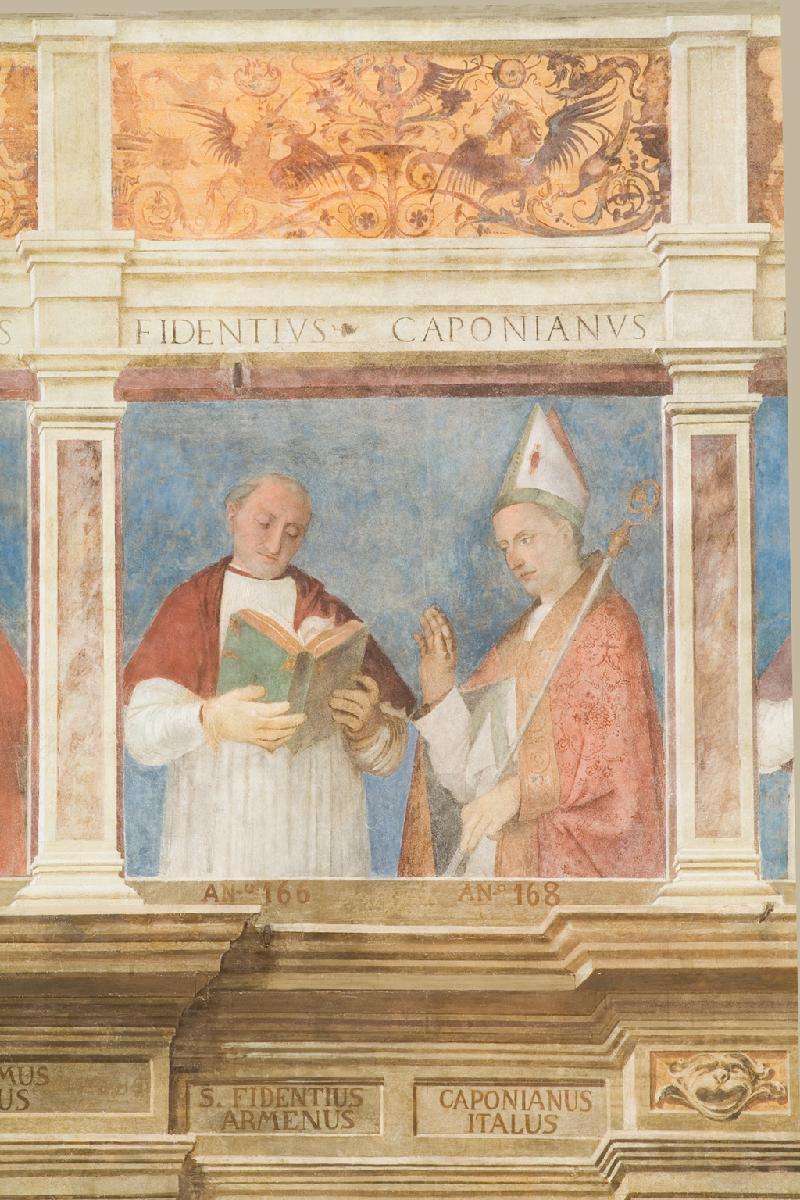Fidentius Armenus on:
[Wikipedia]
[Google]
[Amazon]
 Fidentius Armenus ( it, Fidenzio Armeno), also called Fidentius of Padua (Italian: ''Fidenzio di Padova''), was a saint whose
Fidentius Armenus ( it, Fidenzio Armeno), also called Fidentius of Padua (Italian: ''Fidenzio di Padova''), was a saint whose
 Fidentius Armenus ( it, Fidenzio Armeno), also called Fidentius of Padua (Italian: ''Fidenzio di Padova''), was a saint whose
Fidentius Armenus ( it, Fidenzio Armeno), also called Fidentius of Padua (Italian: ''Fidenzio di Padova''), was a saint whose cultus Cultus may refer to:
*Cult (religious practice)
* ''Cultus'' (stonefly), a genus of stoneflies
* Cultus Bay, a bay in Washington
* Cultus Lake (disambiguation)
*Cultus River
The Cultus River is a stream in the U.S. state of Oregon, located in Desc ...
was kept at Padua
Padua ( ; it, Padova ; vec, Pàdova) is a city and ''comune'' in Veneto, northern Italy. Padua is on the river Bacchiglione, west of Venice. It is the capital of the province of Padua. It is also the economic and communications hub of the ...
in the Middle Ages
In the history of Europe, the Middle Ages or medieval period lasted approximately from the late 5th to the late 15th centuries, similar to the post-classical period of global history. It began with the fall of the Western Roman Empire a ...
. His feast day
The calendar of saints is the traditional Christian method of organizing a liturgical year by associating each day with one or more saints and referring to the day as the feast day or feast of said saint. The word "feast" in this context d ...
is on 16 November. Nothing is known about him. He is traditionally dated to the second century and considered a martyr
A martyr (, ''mártys'', "witness", or , ''marturia'', stem , ''martyr-'') is someone who suffers persecution and death for advocating, renouncing, or refusing to renounce or advocate, a religious belief or other cause as demanded by an externa ...
.. According to some late hagiography
A hagiography (; ) is a biography of a saint or an ecclesiastical leader, as well as, by extension, an adulatory and idealized biography of a founder, saint, monk, nun or icon in any of the world's religions. Early Christian hagiographies migh ...
, he was killed in the seventh year of Marcus Aurelius
Marcus Aurelius Antoninus (Latin: áːɾkus̠ auɾέːli.us̠ antɔ́ːni.us̠ English: ; 26 April 121 – 17 March 180) was Roman emperor from 161 to 180 AD and a Stoic philosopher. He was the last of the rulers known as the Five Good ...
(168). His nickname implies that he was Armenian
Armenian may refer to:
* Something of, from, or related to Armenia, a country in the South Caucasus region of Eurasia
* Armenians, the national people of Armenia, or people of Armenian descent
** Armenian Diaspora, Armenian communities across the ...
..
When Baronius
Cesare Baronio (as an author also known as Caesar Baronius; 30 August 1538 – 30 June 1607) was an Italian cardinal and historian of the Catholic Church. His best-known works are his ''Annales Ecclesiastici'' ("Ecclesiastical Annals"), whi ...
revised the ''Roman Martyrology
The ''Roman Martyrology'' ( la, Martyrologium Romanum) is the official martyrology of the Catholic Church. Its use is obligatory in matters regarding the Roman Rite liturgy, but dioceses, countries and religious institutes may add duly approved ...
'' (1586), he listed Fidentius as a bishop of Padua
The Roman Catholic Diocese of Padua ( it, Diocesi di Padova; la, Dioecesis Patavina) is an episcopal see of the Catholic Church in Veneto, northern Italy. It was erected in the 3rd century.Nicolò Antonio Giustinian listed him third from 166 until 168.
References
{{DEFAULTSORT:Fidentius Armenus 168 deaths Year of birth unknown History of Padua